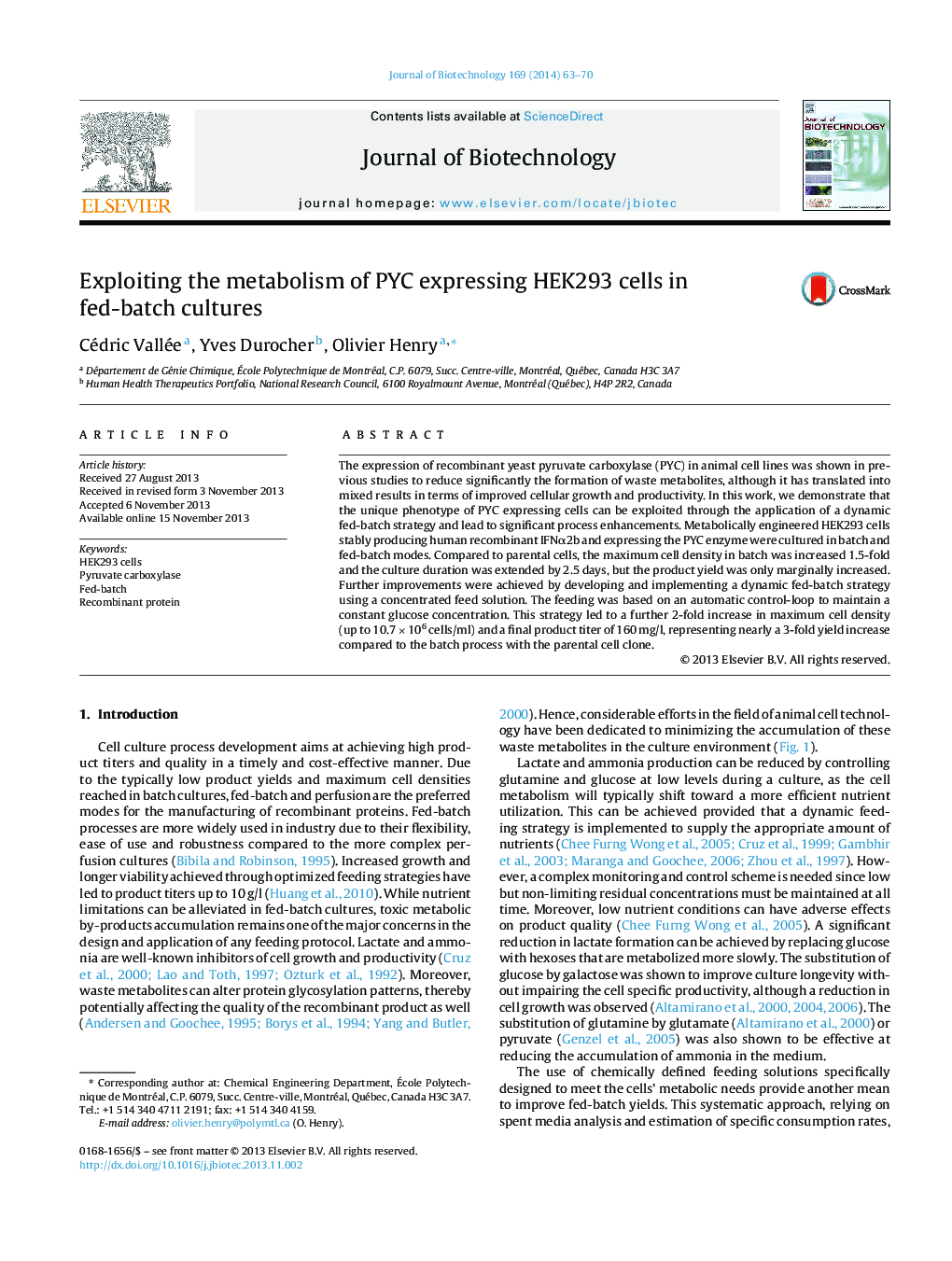| کد مقاله | کد نشریه | سال انتشار | مقاله انگلیسی | نسخه تمام متن |
|---|---|---|---|---|
| 23340 | 43433 | 2014 | 8 صفحه PDF | دانلود رایگان |

• HEK293 cells producing recombinant interferon and expressing pyruvate carboxylase.
• Dynamic fed-batch strategy enhancing cell growth, culture longevity and product yield.
• Efficient nutrient utilization with reduced waste metabolite formation.
The expression of recombinant yeast pyruvate carboxylase (PYC) in animal cell lines was shown in previous studies to reduce significantly the formation of waste metabolites, although it has translated into mixed results in terms of improved cellular growth and productivity. In this work, we demonstrate that the unique phenotype of PYC expressing cells can be exploited through the application of a dynamic fed-batch strategy and lead to significant process enhancements. Metabolically engineered HEK293 cells stably producing human recombinant IFNα2b and expressing the PYC enzyme were cultured in batch and fed-batch modes. Compared to parental cells, the maximum cell density in batch was increased 1.5-fold and the culture duration was extended by 2.5 days, but the product yield was only marginally increased. Further improvements were achieved by developing and implementing a dynamic fed-batch strategy using a concentrated feed solution. The feeding was based on an automatic control-loop to maintain a constant glucose concentration. This strategy led to a further 2-fold increase in maximum cell density (up to 10.7 × 106 cells/ml) and a final product titer of 160 mg/l, representing nearly a 3-fold yield increase compared to the batch process with the parental cell clone.
Journal: Journal of Biotechnology - Volume 169, 10 January 2014, Pages 63–70